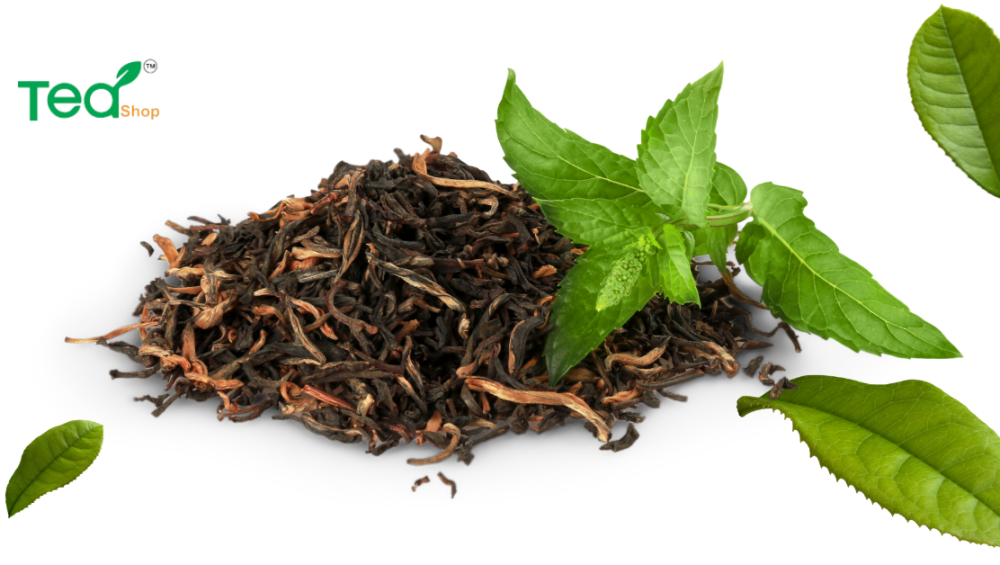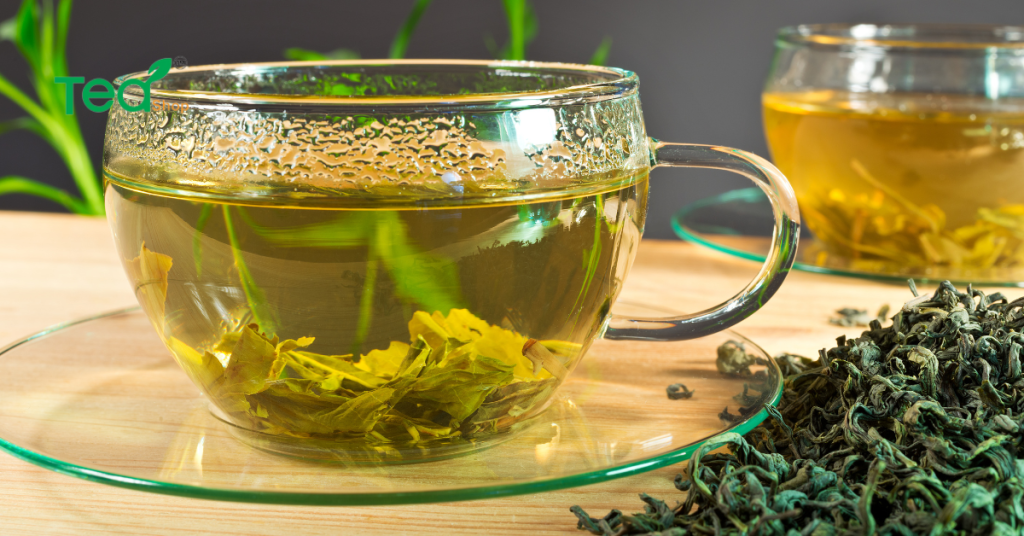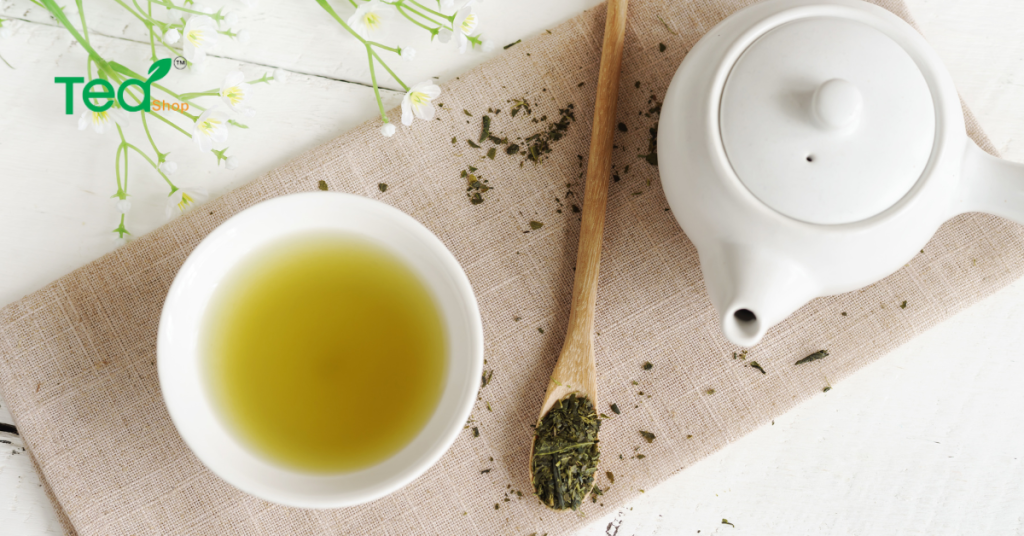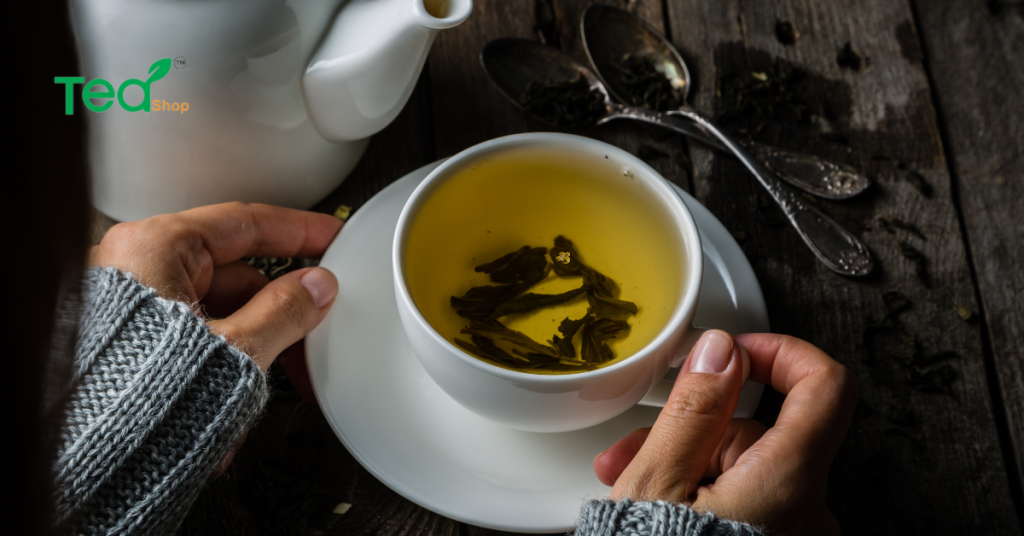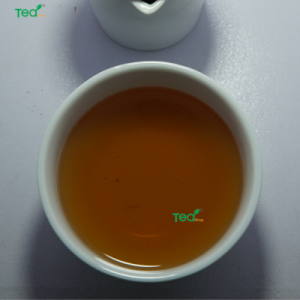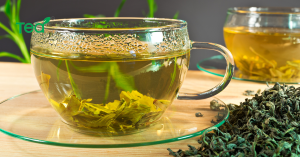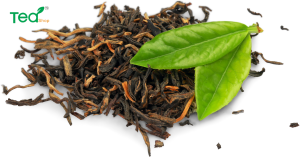Green Tea
Green tea is a type of tea that is made from Camellia sinensis leaves and buds, which have not undergone the same withering and oxidation process used to make oolong teas and black teas. This results in a tea that has a lighter taste and color and is rich in antioxidants, including polyphenols and catechins. Green tea has been consumed for thousands of years, particularly in Asian countries, and has been touted for its potential health benefits, including reducing the risk of heart disease and certain types of cancer, improving brain function, and boosting weight loss efforts. However, it is important to note that while green tea has many potential health benefits, it is not a magic cure-all and should be consumed as part of a balanced diet.
Green Tea Overview
Green tea is a popular beverage that is made from the leaves of the Camellia sinensis plant. Unlike black tea and oolong tea, green tea leaves are not fermented or oxidized, which gives it a lighter color and flavor. Green tea has been consumed for thousands of years and is particularly popular in Asia, where it is considered a staple drink.
One of the key features of green tea is its high content of antioxidants, specifically polyphenols, and catechins. Antioxidants help to protect the body against harmful molecules known as free radicals, which can cause cellular damage and increase the risk of various diseases.
Green tea has been associated with a number of potential health benefits, including:
- Improved cardiovascular health: The antioxidants in green tea have been shown to help reduce the risk of heart disease and lower blood pressure.
- Cancer prevention: Some studies have suggested that green tea may have a protective effect against certain types of cancer, including breast, ovarian, and prostate cancer.
- Better brain function: Green tea contains caffeine and L-theanine, which have been shown to improve alertness and concentration.
- Weight loss: Green tea has been shown to boost metabolism and aid in weight loss efforts.
It is important to note that while green tea has many potential health benefits, it is not a magic cure-all and should be consumed as part of a balanced diet. Additionally, people who are sensitive to caffeine should be mindful of their green tea consumption, as it contains a moderate amount of caffeine.
Types of Green Tea
There are several types of green tea, each with its own distinct flavor, color, and aroma. Some of the most popular types of green tea include:
- Sencha: This is the most common type of green tea in Japan and is made from steamed tea leaves. It has a grassy, vegetal flavor and is known for its bright green color.
- Matcha: This is a finely ground powder made from shade-grown green tea leaves. It has a smooth, creamy texture and a sweet, slightly bitter flavor. Matcha is often used in tea ceremonies and is a popular ingredient in smoothies and baked goods.
- Gyokuro: This is a premium type of green tea from Japan and is known for its delicate flavor and high concentration of antioxidants. Gyokuro is shade-grown for several weeks before harvest, which results in higher chlorophyll content and a sweeter, milder flavor.
- Dragonwell: This is a type of Chinese green tea that is known for its flat, wide leaves and nutty, slightly sweet flavor. It is considered one of the most popular teas in China and is often referred to as the “champagne of Chinese teas.”
- Jasmine Green Tea: This is a green tea that is scented with the aroma of jasmine flowers. The tea leaves are blended with jasmine petals, which infuse the tea with a delicate, floral fragrance.
- Houjicha: This is a type of Japanese green tea that is roasted over charcoal, which gives it a nutty, toasty flavor and a reddish-brown color. It has a lower caffeine content than other green teas and is often enjoyed in the evening.
These are just a few examples of the many types of green tea available. Each type has its own unique flavor profile and health benefits, so experimenting with different types of green tea is a great way to discover your personal favorite.
Green Tea in Bangladesh
Green tea is not widely grown or consumed in Bangladesh. The country is better known for its production of black tea, which is grown in the northeastern region of the country. Black tea is an important part of Bangladesh’s economy, with tea plantations providing employment for millions of people.
However, there is a growing interest in green tea in Bangladesh, particularly among health-conscious consumers. A number of tea gardens have started to cultivate green tea as a supplement to their black tea production, and green tea is becoming more widely available in stores and supermarkets.
Green tea has many potential health benefits, and its popularity is growing as people become more aware of the importance of a healthy lifestyle. As a result, the demand for green tea in Bangladesh is likely to increase in the coming years. However, it is important to note that the quality of green tea can vary greatly, so it is important to purchase from a reputable source and to follow the recommended brewing instructions to get the best results.
Benefits of Green Tea
Green tea has a number of potential health benefits, many of which are attributed to its high content of antioxidants, specifically polyphenols, and catechins. Some of the key benefits of green tea include:
- Improved cardiovascular health: The antioxidants in green tea have been shown to help reduce the risk of heart disease and lower blood pressure.
- Cancer prevention: Some studies have suggested that green tea may have a protective effect against certain types of cancer, including breast, ovarian, and prostate cancer.
- Better brain function: Green tea contains caffeine and L-theanine, which have been shown to improve alertness and concentration.
- Weight loss: Green tea has been shown to boost metabolism and aid in weight loss efforts.
- Better dental health: Green tea has antimicrobial properties that can help reduce the risk of gum disease and tooth decay.
- Lower risk of type 2 diabetes: Some studies have suggested that green tea consumption may help improve insulin sensitivity and reduce the risk of type 2 diabetes.
- Improved skin health: The antioxidants in green tea have been shown to protect the skin against damage from UV radiation and to reduce the risk of skin cancer.
It is important to note that while green tea has many potential health benefits, it is not a magic cure-all and should be consumed as part of a balanced diet. Additionally, the effects of green tea can vary greatly from person to person, and more research is needed to fully understand its health benefits. However, incorporating green tea into your diet is a simple and delicious way to support your overall health and well-being.
Green Tea Benefits for Skin
Green tea has a number of potential benefits for the skin, due to its high content of antioxidants, specifically polyphenols, and catechins. Some of the ways in which green tea can benefit the skin include:
- Protecting against sun damage: The antioxidants in green tea have been shown to protect the skin against damage from UV radiation, which can lead to wrinkles, dark spots, and skin cancer.
- Reducing inflammation: Green tea has anti-inflammatory properties that can help soothe irritated skin and reduce redness.
- Improving skin elasticity: The polyphenols in green tea have been shown to improve skin elasticity and reduce the appearance of fine lines and wrinkles.
- Cleansing and toning the skin: The antimicrobial properties of green tea can help cleanse the skin and unclog pores, while its astringent properties help to tighten and tone the skin.
- Reducing acne: The anti-inflammatory and antimicrobial properties of green tea have been shown to help reduce the severity of acne breakouts.
It is important to note that while green tea has many potential benefits for the skin, the effects can vary greatly from person to person, and more research is needed to fully understand its benefits. To take advantage of the skin benefits of green tea, you can drink it as a beverage, use green tea-infused skin care products, or apply green tea directly to the skin in the form of a compress. Regardless of how you choose to use it, green tea can be a simple and effective way to support the health and beauty of your skin.
Green Tea For Weight Loss
Green tea has been studied for its potential role in weight loss, and some research has suggested that it may help support weight loss efforts. The key components in green tea that are believed to aid in weight loss are caffeine and catechins, specifically epigallocatechin gallate (EGCG).
- Boosts metabolism: Caffeine has been shown to boost metabolism, which can help the body burn more calories. EGCG has also been shown to increase the body’s ability to burn fat, which can help support weight loss.
- Increases fat oxidation: Some research has suggested that green tea may increase the body’s ability to oxidize fat, which can lead to a reduction in body fat.
- Suppresses appetite: Green tea has been shown to suppress appetite and reduce the desire to eat, which can help support weight loss efforts.
It is important to note that while green tea may have potential benefits for weight loss, it is not a magic cure-all and should be consumed as part of a balanced diet and regular exercise program. Additionally, the effects of green tea on weight loss can vary greatly from person to person, and more research is needed to fully understand its potential benefits. However, incorporating green tea into your diet as a beverage or supplement can be a simple and delicious way to support your overall health and weight loss efforts.
Green Tea Side Effects
While green tea is generally considered safe for most people when consumed in moderation, there are a few potential side effects to be aware of. Some of the most common side effects of green tea include:
- Caffeine sensitivity: Green tea contains caffeine, which can cause jitters, increased heart rate, and insomnia in some people.
- Stomach upset: Green tea can cause an upset stomach, particularly when consumed in large quantities or on an empty stomach.
- Iron absorption: The tannins in green tea can interfere with the absorption of iron from plant-based foods, which is important for people who follow a vegetarian or vegan diet.
- Interactions with medications: Green tea may interact with certain medications, including blood pressure medications, stimulants, and antidepressants.
- Pregnancy and breast-feeding: Green tea should be consumed in moderation during pregnancy and breastfeeding, as high amounts of caffeine can be harmful.
It is important to remember that the side effects of green tea can vary greatly from person to person, and more research is needed to fully understand the potential risks. Additionally, while green tea has many potential health benefits, it is not a cure-all and should be consumed as part of a balanced diet. If you are considering adding green tea to your diet, it is best to talk to your doctor first, especially if you have a medical condition or take medications regularly.
Green Tea Caffeine
Green tea contains caffeine, which is a natural stimulant that can affect the central nervous system. The amount of caffeine in green tea can vary greatly depending on the type of green tea and the brewing method, but it is generally considered to contain less caffeine than black tea or coffee.
On average, a cup of green tea contains approximately 25-30 mg of caffeine, whereas a cup of coffee contains about 95 mg of caffeine. However, it is important to keep in mind that the exact amount of caffeine in green tea can vary greatly depending on the brand, the brewing method, and the type of tea.
While caffeine in green tea can have positive effects, such as increasing alertness, focus, and mood, it can also have negative effects, such as jitters, anxiety, and insomnia, particularly in people who are sensitive to caffeine. Additionally, consuming large amounts of caffeine can lead to negative side effects, such as increased heart rate, palpitations, and headaches.
It is important to remember that the effects of caffeine can vary greatly from person to person, and more research is needed to fully understand the potential benefits and risks of consuming green tea. If you are concerned about the amount of caffeine in green tea or are sensitive to caffeine, it is best to talk to your doctor before incorporating it into your diet.
Green Tea Price In Bangladesh
The price of green tea in Bangladesh varies depending on several factors, such as the brand, the quality of the tea leaves, and the type of green tea. On average, the price of green tea in Bangladesh can range from 30-150 Bangladeshi Taka (BDT) per 100 grams, although this can vary greatly depending on the brand and the quality of the tea.
It is also worth noting that the price of green tea can vary depending on the region in Bangladesh and the availability of the tea. In general, high-quality green teas, such as premium blends or specialty teas, may be more expensive, whereas more common, mass-produced green teas may be less expensive.
Overall, the price of green tea in Bangladesh is relatively affordable, making it accessible to a wide range of consumers. If you are looking to buy green tea in Bangladesh, it is best to compare prices and shop around to find the best deal, while also considering the quality of the tea and the reputation of the brand.
Btri Green Tea
BTRI Green Tea is tea produced in Bangladesh Tea Research Institute’s own garden. Which fulfills many demands in the country’s market and BTRI Green Tea is exported to different countries of the world.
BTRI Green Tea collects tea from their virgin gardens and boils it using state-of-the-art machines. So this tea is very popular. Not only green tea, but all types of tea are produced here from the research unit of Bangladesh Tea Board. One of them is: BTRI Black Tea, BTRI Green Tea, BTRI Oolong Tea and BTRI Orthodox Tea.
You can easily order any tea.
The quality and taste of Btri green tea can vary depending on the specific product and the source of the tea leaves. Some Btri green tea products may be high-quality, premium blends, while others may be more basic and mass-produced. It is always a good idea to read reviews, do some research, and try a sample before purchasing a large amount of tea.
Green Tea Shop In Bangladesh
There are many green tea shops in Bangladesh where you can purchase green tea. Some popular options include local tea shops, supermarkets, and online retailers. Here are a few places where you might be able to find green tea in Bangladesh:
- Local tea shops: Many cities in Bangladesh have local tea shops that specialize in selling high-quality teas, including green tea. These shops often have knowledgeable staff who can help you choose the right tea for your needs and tastes.
- Supermarkets: Many supermarkets in Bangladesh carry a variety of green teas from different brands, making it easy to find a product that fits your needs and budget.
- Online retailers: There are also many online retailers in Bangladesh that sell green tea, including popular e-commerce websites like Tea Shop, Daraz, and AjkerDeal.
It is important to keep in mind that the quality and price of green tea can vary greatly depending on the source and the brand, so it is always a good idea to read reviews and compare prices before making a purchase. Additionally, if you are looking for a specific type of green tea, such as a premium blend or specialty tea, it may be best to visit a local tea shop or specialist retailer to get the best selection and advice.
Top of Form


